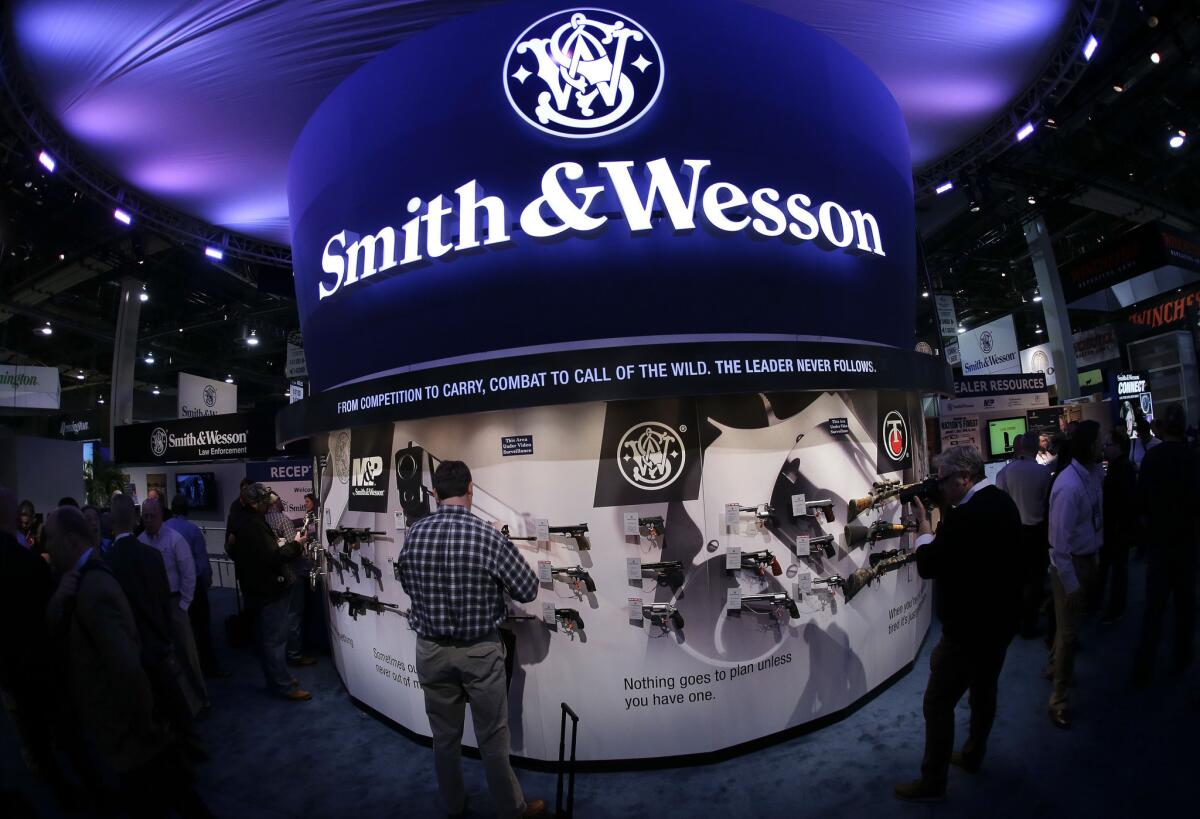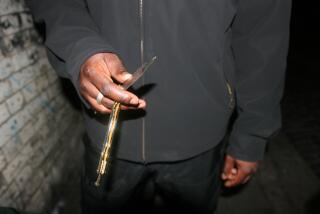Smith & Wesson says it won’t follow California ‘microstamping’ law

Gun manufacturer Smith & Wesson refused Thursday to comply with California’s controversial “microstamping” law, causing more of its products to fall off the state’s permissible firearms list and be ineligible for sale.
In a two-page statement on its website, Smith & Wesson criticized Assembly Bill 1471, which requires new or redesigned semiautomatic weapons to carry microstamping technology, imprinting its make, model and serial number onto shell casings when a bullet is fired.
Though the law was passed in 2007, language in the legislation stipulated it would go into effect when the necessary technology was widely available. It was not enacted until May 2013.
Critics argue that the technology is flawed. In its statement, Smith & Wesson said “a number of studies have indicated that microstamping is unreliable, serves no safety purpose, is cost prohibitive and, most importantly, is not proven to aid in preventing or solving crimes.”
“Smith & Wesson does not and will not include microstamping in its firearms,” the statement said. “The microstamping mandate and the company’s unwillingness to adopt this so-called technology will result in a diminishing number of Smith & Wesson semiautomatic pistols available for purchase by California residents.”
The company is not the first to take such action. The National Shooting Sports Foundation — which has sued the state over the law — said gun manufacturer Sturm, Ruger & Co. would also allow its products to fall off California’s list of guns allowable for sale.
“We are working hard to serve our customers in California and will do all we can to fight this draconian law,” read a Ruger statement posted on the foundation’s website.
When the bill was passed in 2007, dozens of police chiefs, public officials and anti-violence groups voiced support, saying that it would help police more easily trace bullets and solve crimes. The National Rifle Assn. opposed the measure, along with other gun rights groups and manufacturers, including Smith & Wesson.
James Debney, Smith & Wesson’s president and CEO, said in a statement Thursday that his company’s fight against the measure was ongoing.
“We will continue to work with the NRA and the NSSF to oppose this poorly conceived law,” he said.
Twitter: @katemather | Google+
kate.mather@latimes.com
More to Read
Start your day right
Sign up for Essential California for news, features and recommendations from the L.A. Times and beyond in your inbox six days a week.
You may occasionally receive promotional content from the Los Angeles Times.







